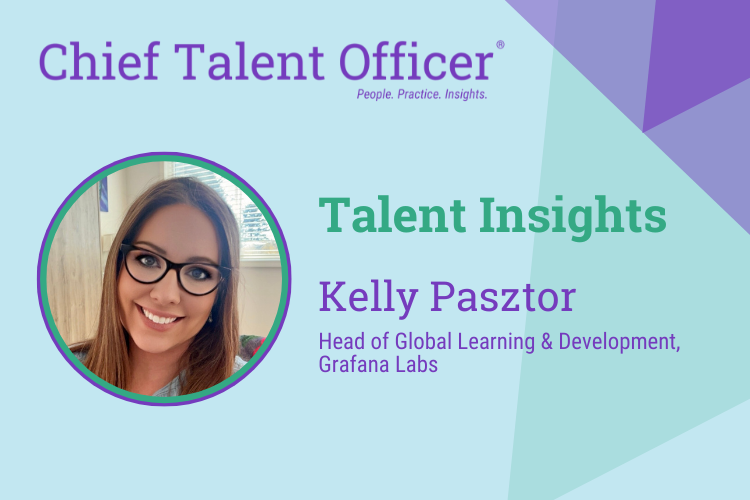Chief Talent Officer’s “Talent Insights” series is dedicated to sharing the insights and expertise of influential talent executives. In this Q&A series, we garner strategic insights, innovative approaches and challenges overcome from C-suite talent and HR executives, chief talent officers, chief people officers and more who are shaping the future of talent management.
What initially drew you to a career in talent management, and how have your experiences in the field evolved over the years?
I went to graduate school in Industrial-Organizational Psychology after falling in love with an org psych class in undergrad. After graduate school I joined TALX, a tech company that is now a part of Equifax as an L&D/OD Specialist. Upon acquisition I pivoted to health care tech implementation for a couple years, and ultimately found myself missing L&D. I started to get involved in L&D/talent management at the health care tech company and then spent more than a decade building out the function and programs. Now for the last three years I’ve been at a remote tech company where I stood up the L&D function and designed our strategy to account for retaining and developing talent in our remote-first, people-first, globally-distributed fast-paced tech world.
What core values and principles do you believe are essential for building a positive and inclusive company culture?
Creating an environment of trust and psychological safety is paramount; in order to do that in a remote and globally distributed environment, it comes down to getting crystal clear with what the norms and expectations are and how those feed and nurture the culture. It’s also critical that folks keep an open mind, respect and value diverse voices and are constantly on the path of learning, growing and increasing their emotional intelligence. Trust and relationships have to be very intentionally nurtured in a remote and globally distributed environment.
Can you share a significant challenge you’ve faced as a talent leader and how you successfully navigated through it?
As time goes on, expectations rise, and rightfully so, if we are to continue to achieve bigger and more audacious goals. With that at the forefront, a challenge that we face (past, present and in the future) is evolving the management and leadership in the talent management space. That means equipping our leaders to understand that continuous performance and talent management incorporates raising the bar over time and then adjusting hiring practices, strategies for growing and developing the team, feedback delivery and expectation setting/resetting. Because this has been a challenge and will always be a challenge, we’ve had to build these elements into our culture, into our leadership principles and tie them back to the business drivers.
What strategies have you found most effective in attracting and retaining top talent in competitive industries?
Creating an environment and culture where people feel seen, heard and understood seems so basic, but is definitely one of the keys to success. After that it’s knowing your talent, what motivates them and helping your talent understand the wide array of opportunities and benefits (some monetary and some not) available to them.
How do you balance advocating for employees’ needs while aligning with your company’s business objectives?
It’s about communicating a shared vision that people understand and want to be a part of. When there is alignment you don’t need to work so hard for balance.
What leadership skills do you prioritize and cultivate as a senior talent leader to inspire your team and drive talent initiatives?
Emotional intelligence, vulnerability and courage.
What game-changing advice would you offer if you could go back in time and mentor your younger self?
Authenticity is key. Stop your perfectionism (there’s no such thing as perfect). Stop people-pleasing and stop comparing yourself to others. When you find something you are passionate about and you work hard to move that forward, everything else naturally falls into place. And if you find yourself at a table where you’re not seen, heard or understood, you’re at the wrong table. It’s okay to get up and go elsewhere.
What do you feel is currently the single biggest challenge facing talent professionals and the industry as a whole?
The competition for time is real. When people are asked to do more with less, the first thing folks shelve for a rainy day are learning opportunities. This might help folks get more done in the short term, but in the long term it has a negative impact on the business due to a lack of creativity and innovation, and stifled growth and talent that looks to go elsewhere. Talent needs to be a strategy driven collaboratively with all senior leaders as they set the tone collectively.
We’re always looking to showcase innovative tools and technologies. Can you share one tech product or platform that has significantly improved your work processes and why you find it valuable?
My team has found a lot of value in the efficiencies gained with Monday and MixMax. At a small scrappy startup, any minutes saved help.
Interested in being featured in our “Talent Insights” series? Please complete this FORM.















